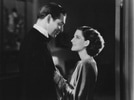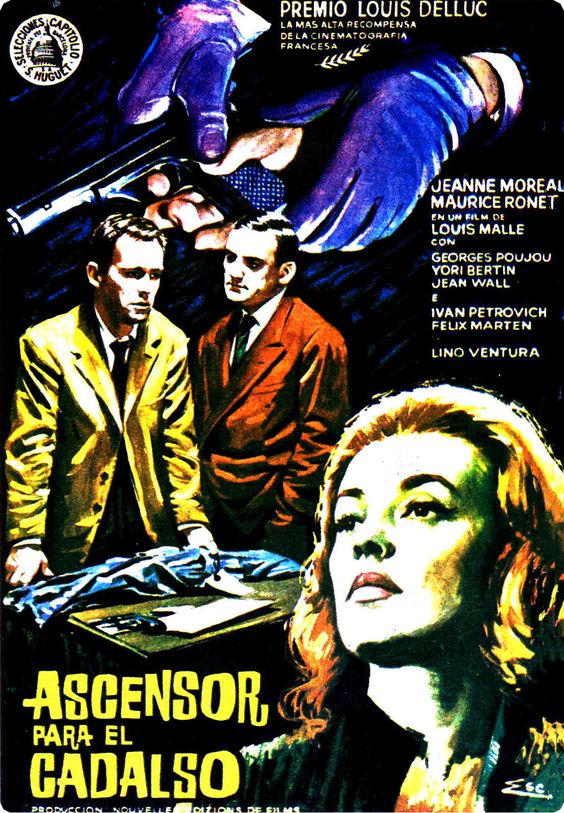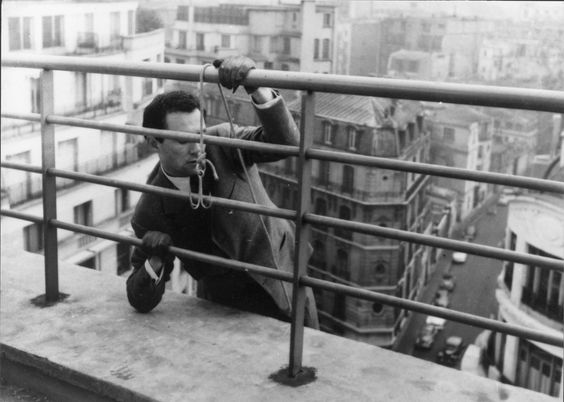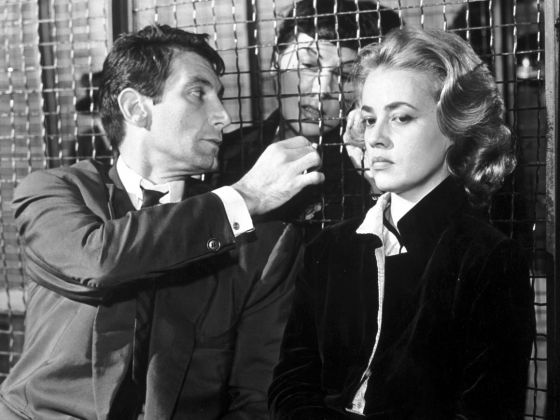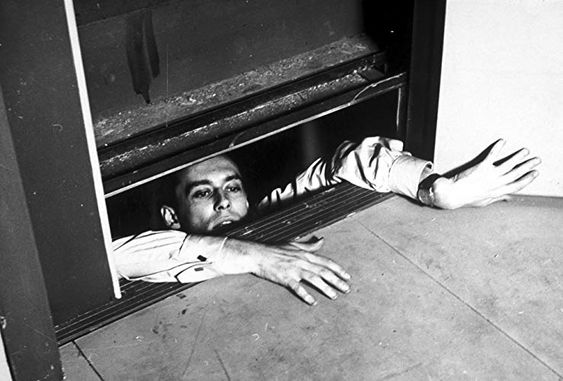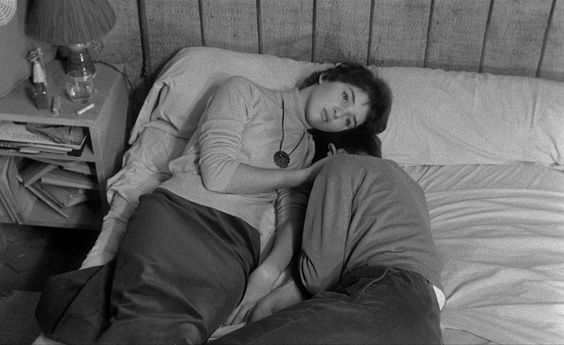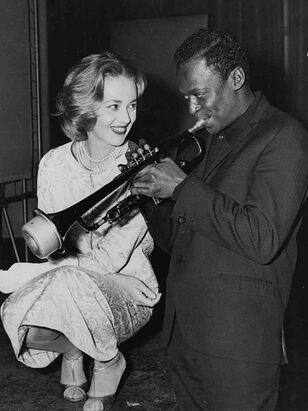|
Elevator to the Gallows (1958)
Director: Louis Malle Stars: Jeanne Moreau, Maurice Ronet, Lino Ventura IMDB Score: 8 Released in early 1958, Louis Malle’s Elevator to the Gallows is a crime thriller set in motion by a murder disguised to look like a suicide. One simple mistake, however, leads to 2 more murders, a man hunt, a series of mistaken identities & an attempted suicide. Malle’s intricately plotted film, his first fiction film, is a tight 91 minute excursion through a Paris that didn’t quite exist at the time of shooting. Enamored with American films like many of his contemporaries (Trufaut, Godard, Chabrol, Rohmer) & somewhat beholding to the masterworks of Jean Pierre Melville, Malle admittedly looked to modernize Paris, with an eye towards America. Key points in the plot were shot at the only motel in France, which in the film is supposed to be just outside Paris, but was actually 125 miles away. Similarly, the elevator of the title was in one of only 5 buildings so equipped in Paris. In using these “Americainized” locations Malle said he created a Paris of ten years in the future. The film also cast forward towards the New Wave that was to overtake French film a few years later in its themes of isolation, the consumerist attitudes & dispossession of the younger generation & undertones of a disillusionment at the core of French society.
Julian Tavernier (Maurice Ronet) is a decorated hero of the French wars in Indochina & Algeria, who now works for a crooked arms dealer, Simon Carala. He is also having a passionate love affair with his boss’s wife. Malle introduces the lovers in extreme close-ups to open the film as they proclaim their love for each other over the phone. In a silent caper right out of Melville, Tavernier climbs up the side of his office building to kill his boss, plant a gun & then repel down a floor to cover his tracks. Not realizing he left a key piece of evidence behind, he exits the building with co-workers, sealing his alibi & preparing to rendezvous with his now widowed lover. Returning to the building he becomes trapped in an elevator, while 2 young lovers steal his car, the gun he leaves in the glovebox & leave Paris, driving by Mrs. Carala (Jeanne Moreau). She is distraught when she mis-identifies the driver as Tavernier & wanders the Paris streets all night looking for him. Moreau, who was already a veteran of nearly 20 films, &would go on to star in French New Wave classics like The Lovers (Malle, ’58), Jules & Jim (Trufautt, 62), was the first to sign on to star, which immediately elevated the films stature. Her emotional search for Tavernier throughout the night centers the film, while at the same time reflecting the chaos taking place to the other characters as she becomes more desperate & disheartened about her missing lover. Similarly, her determined attitude to solve the murders committed at the hotel & clear Tavernier, unravels the series of odd coincidences & mistaken identities that drive the police to splash Tavernier all over the front pages. The young lovers themselves, who steal Tavernier’s car & assume his identity, represent & reflect a change in attitude in French youth that lived in the moment, even if that meant stealing. Veronique (Yori Bertin), a flower girl who admires the suave Tavernier from afar, & Louis (Georges Poujouly), a leather jacketed punk, escape the boredom by racing a flashy Mercedes on the highway, then following the German couple in the car to a motel for drinks, cigars & a couple of pictures. Their devil may care attitude that allows them to live in every moment without forethought leads to the only real tragedy in the film, but it also uncovers the duplicitous nature of all the relationships in the film. Malle, who dropped out of film school to embark on a 2 month voyage with Jacques Cousteau, ended up staying with the iconic conservationist for 3 years, rising to be head of his filming unit. Cousteau granted Malle co-directing status on the film The Silent World (’56), leaving Malle to reflect later about Elevator to the Gallows, “The only thing I directed before were a bunch of fish.” Upon leaving Couseau, Malle came across a crime novel that he shaped into Elevator to the Gallows with novelist Roger Nimier. In doing so, Malle created one of the best film debuts for a director & helped establish a nearly 36 year career that produced The Fire Within (’63), Atlantic City (’80), My Dinner With Andre (’81) & Au Revoir les Enfants (’87), to name just a few. A final Note: I would be remiss if I didn’t mention to immense contribution that the Miles Davis score has on the mood & action of this film. Davis’ trumpet lifts the action & Kenny Clarke’s drums create the rhythm of the story, dictating both mood & feeling throughout, especially during Moreau’s nighttime wanderings. It also helps wrap the actors in their desolation & loneliness like no other music could. |
- Home
-
Top 10 Lists
- My Top 10 Favorite Movies
- Top 10 Heist Movies
- Top 10 Neo-Noir Films
- The Top 10 Films of the Troubles (1969-1998)
- The Troubles Selected Timeline
- Top 10 Films from 2001
-
Director Top 10's
>
- Top 10 Film Noir Directors
- Top 10 Coen Brothers Films
- Top 10 John Ford Films
- Top 10 Samuel Fuller Films
- Jean-Luc Godard 1960-67
- Top 10 Alfred Hitchcock Films
- Top 10 John Huston Films
- Top 10 Fritz Lang Films (American)
- Val Lewton Top 10
- Top 10 Ernst Lubitsch Films
- Top 10 Jean-Pierre Melville Films
- Top 10 Nicholas Ray Films
- Top 10 Preston Sturges Films
- Top 10 Robert Siodmak Films
- Top 10 Paul Verhoeven Films
- Top 10 William Wellman Films
- Top 10 Billy Wilder Films
-
Actor/Actress Top 10's
>
- Top 10 Joan Blondell Movies
- Top 10 Catherine Deneuve Films
- Top 10 Clark Gable Movies
- Top 10 Ava Gardner Films
- Top 10 Gloria Grahame Films
- Top 10 Jean Harlow Movies
- Top 10 Miriam Hopkins Films
- Top 10 Grace Kelly Films
- Top 10 Burt Lancaster Films
- Top 10 Carole Lombard Movies
- Top 10 Myrna Loy Films
- Top 10 Marilyn Monroe Films
- Top 10 Robert Mitchum Noir Movies
- Top 10 Paul Newman Films
- Top 10 Robert Ryan Movies
- Top 10 Norma Shearer Movies
- Top 10 Barbara Stanwyck Films
- Top 10 Noir Films (Classic Era)
- Top 10 Pre-Code Films
- Top 10 Actresses of the 1930's
-
Reviews
- Quick Hits: Short Takes on Recent Viewing >
- The 1910's >
- The 1920's >
-
The 1930's
>
- Becky Sharp (1935)
- Blonde Crazy
- Bombshell ('33)
- The Cheat
- The Conquerors
- The Crowd Roars
- The Divorcee
- Frank Capra & Barbara Stanwyck: The Evolution of a Romance
- Heroes for Sale
- The Invisible Man (1933)
- L'Atalante (1934)
- Let Us Be Gay
- My Man Godfrey
- No Man of Her Own (1932)
- Platinum Blonde ('31)
- Reckless ('35)
- The Sign of the Cross (1932)
- The Sin of Nora Moran (1932)
- True Confession ('37)
- Virtue ('32)
- The Women
-
The 1940's
>
- Casablanca (1942)
- The Story of Citizen Kane
- Criss Cross (1949)
- Double indemnity
- Jean Arthur in A Foreign Affair
- The Killers 1946 & 1964 Comparison
- The Maltese Falcon Intro
- Moonrise (1948)
- My Gal Sal (1942)
- Nightmare Alley
- Notorious Intro ('46)
- Overlooked Christmas Movies of the 1940's
- Pursued (1947)
- Remember the Night ('40)
- The Red Shoes (1948)
- The Set-Up ('49)
- They Won't Believe Me (1947)
- The Third Man
-
The 1950's
>
- The Asphalt Jungle Secret Cinema Intro
- Cat on a Hot Tin Roof ('58) Intro
- The Crimson Kimono (1959)
- A Face in the Crowd (1957)
- In a Lonely Place
- A Kiss Before Dying (1956)
- Mogambo ('53)
- Niagara (1953)
- The Night of The Hunter ('55)
- Pushover Noir City
- Rear Window (1954)
- Rebel Without a Cause (1955)
- Red Dust ('32 vs Mogambo ('53)
- The Searchers ('56)
- Singin' in the Rain Introduction
- Some Like It Hot ('59) >
-
The 1960's
>
- The April Fools (1969)
- Band of Outsiders (1964)
- Bonnie & Clyde (1967)
- Cape Fear ('62)
- Contempt (Le Mepris) 1963
- Cool Hand Luke (1967) Intro
- Dr Strangelove Intro
- For a Few Dollars More (1965)
- Fistful of Dollars (1964)
- The Good, the Bad and the Ugly (1968)
- A Hard Day's Night Intro
- The Hustler ('61) Intro
- The Man With No Name Trilogy
- The Misfits ('61)
- Point Blank (1967)
- The Umbrellas of Cherbourg/La La Land
- Underworld USA ('61)
- The 1970's >
- The 1980's >
- The 1990's >
- 2000's >
-
Artists
-
Resources
- Video Introductions
- Anatomy of a Murder Notes
Proudly powered by Weebly
